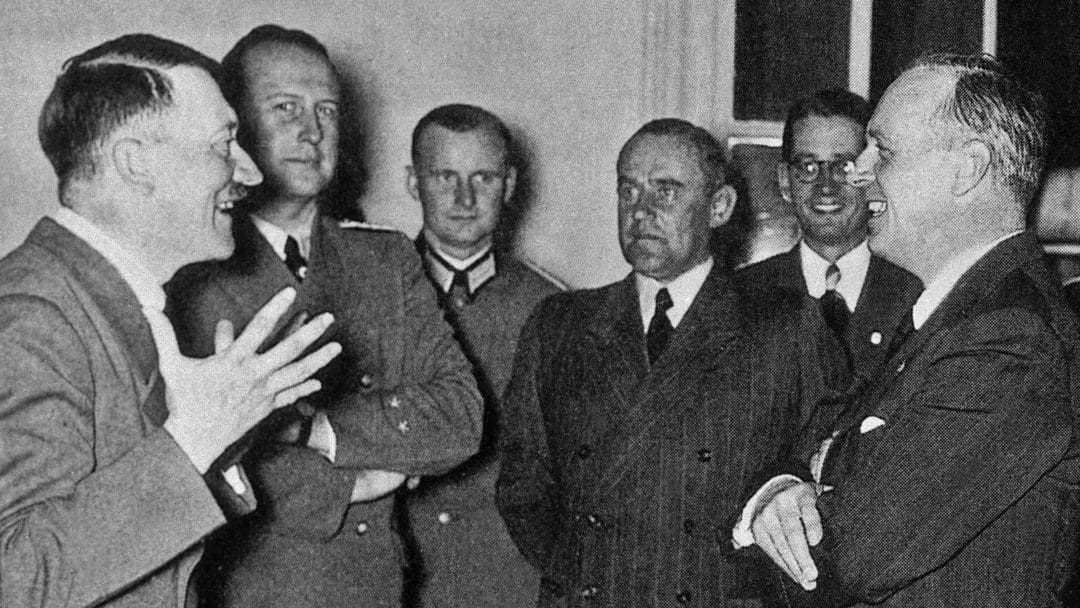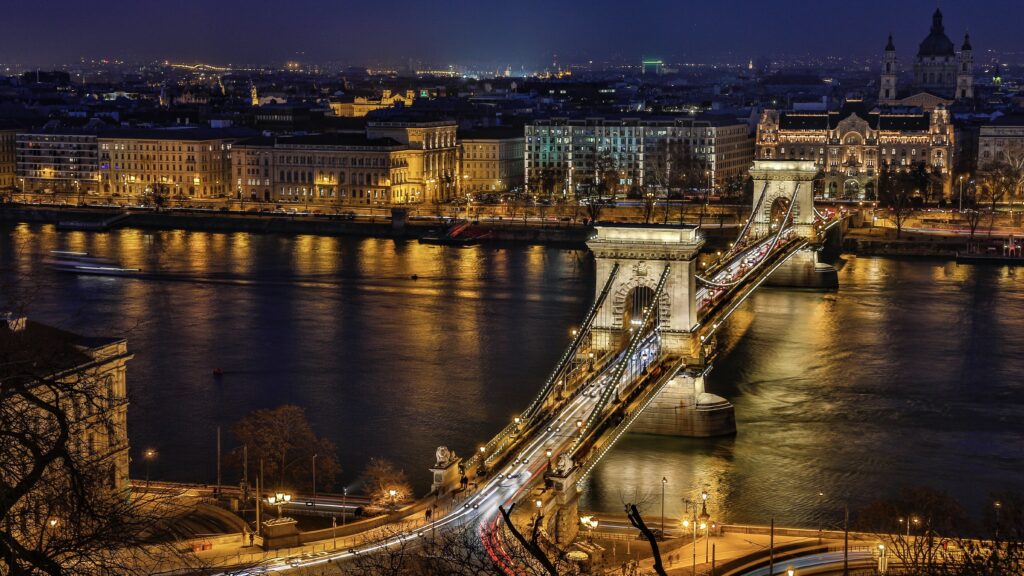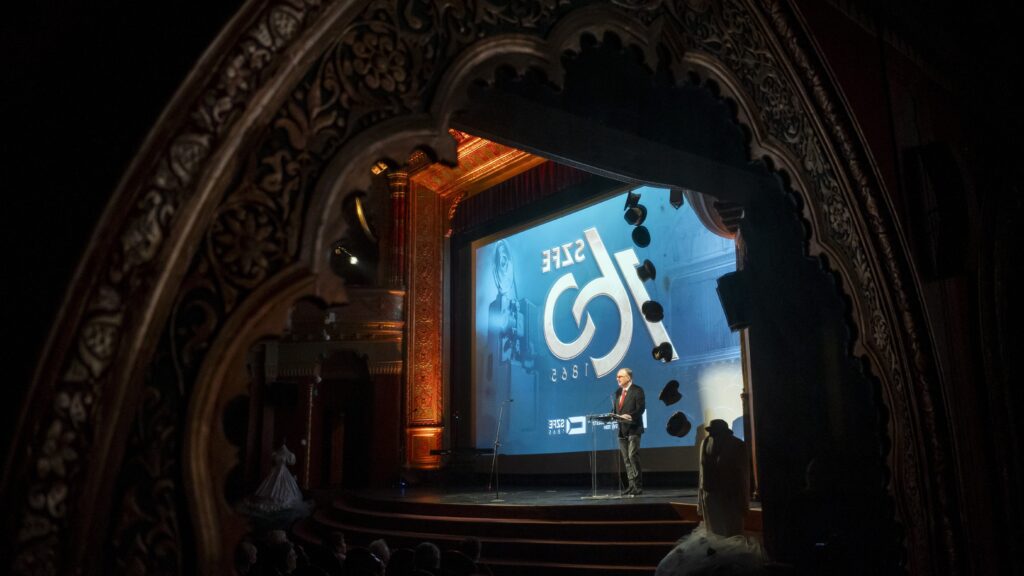On 23 August, countries across the world commemorate the victims of Stalinism and Nazism. The European Union and many countries across the West have launched a so-called “Black Ribbon Day” in 2009 ‘to preserve the memory of the victims of mass deportations and exterminations, while promoting democratic values with the aim to reinforce peace and stability in Europe’. But is the danger of seeing democracy subverted into tyranny really banned?
The horrors of totalitarianism have left deep, perhaps even fatal wounds in the identity of the West. It even seems that the further we move away from the actual events, the more we struggle with our past. This is not only due to the specific historical context, where the German public first tried to forget about National-Socialist crimes for at least two decades before slowly opening up to its collective responsibility, while a significant part of the Russian population is even now entangled in a web of justification or willful ignorance about the horrible crimes committed under communism. It is also due to two intertwined factors: the growing historical ignorance of the general public on the one hand, and the increasing political instrumentalization of the memory of totalitarianism on the other. Observing Black Ribbon Day may offer a small, but important contribution to rectifying these problems.
Concerning the ignorance of the general public, we cannot but notice to what degree the historical knowledge not only of young people has reached unthought abysses
Since schools have refrained from teaching chronology and focus entirely on very selective “case studies”, knowledge about larger continuities and about the never-changing laws of human nature has largely disappeared. The ensuing vacuum has gradually been filled by other, increasingly ideologized content. For sure, more attention than ever before is paid to totalitarianism in schools and universities. But this is usually done in a decontextualized way and based on a whole series of questionable or incomplete cultural and historical pre-requisites. As a result, many young people are significantly less well informed about these events than the previous generation. They now also tend to entertain a strange combination of a deeply felt sense of historical shame and a self-righteous belief in their own moral superiority. But it is not only the educational system that is at fault: the mass media have created—by focusing, omitting and distorting information and submitting to the general left-liberal mindset put in place since the 1968 Revolution—an atmosphere of general cultural neglect, where history (or at least Western history) is presented as an indistinct mass of crimes and horrors, teleologically culminating in totalitarianism, whereas the enormous wealth of Western cultural achievements is willfully depicted as “old-fashioned” or “boring” oddities. Hence, it is telling that, in the public debate, the term “anti-totalitarianism” has increasingly made way to the phrase of “anti-Fascism”, which clearly omits an entire half of the issue at hand and puts history in a decidedly ideologized frame.
This leads us to the political instrumentalization of totalitarianism. Many contemporaries rightfully saw the horrors of Hitlerism or Stalinism as the inevitable consequences of national or international socialism with its distinctive egalitarianist, anti-individualist, materialist and expansionist outlook. They chose to fight the totalitarian temptation by striving towards and cultivating humanism, natural law, and a thoughtful conservatism grounded in Christianity. Unfortunately, next generations have gradually abandoned this historical point of view and adopted a different analytical perspective. Taking over the Marxist narrative of transcendence as a mere elitist cover-up for economic exploitation, at least in the West, totalitarianism has gradually been associated with conservatism. At the same time, the political left has absolved itself from any form of guilt for the rise of communist totalitarianism by stating that the latter did not represent “real socialism”, but was tainted by various “reactionary”, i.e. conservative features (such as Stalinism) and thus doomed to being perverted.
Over time, a narrative has been put in place where conservative thought is no longer seen as the ultimate antagonist of totalitarianism, but rather as its true intellectual basis. Unfortunately, most conservatives have not fought resolutely enough against this framing. Admittedly, in 1920s Italy as well as well as in Weimar, Germany, many conservatives, fearing an immediate communist takeover, indeed believed authoritarianism was the only defense against this threat. These conservatives underestimated how deeply the new regimes they supported were themselves embodying much of what they pretended to fight – a fatal mistake based on the (alleged) battle against a common enemy than on a real kinship between right-wing totalitarianism and the old-world-order conservatives so dearly wanted to preserve.
The consequences of this evolution are numerous and manifold, and we are only at the beginning of the process. Anti-totalitarianism (or rather: “anti-fascism”) has become a major weapon in the fight against a whole part of society and is increasingly used as a ‘one-size-fits-all accusation’ against political or other opponents. Traditionalist Christians, pro-life activists, climate change “deniers”, Eurosceptics, COVID vaccine opponents, gender theory critics, cultural patriots—all are quickly and repeatedly labelled as “right-wingers” in the mainstream media—and the slope from this epithet to fascism, totalitarianism and genocidal projects is a very slippery one: the reductio at Hitlerum has become the ultimate weapon against any form of dissent.
This is a highly dangerous evolution: not only because of its obvious threat to the freedom of speech and political liberty, but also because of the cynical distortion of the past itself. Indistinctly labelling each and every movement opposing the political whims and fashions of the time as “fascist” is not only an insult to the countless victims of totalitarianism, it is also a belittling of the real misdeeds of those who were responsible. Doing so, could—sooner or later—create such a mental confusion that, when another totalitarian temptation presents itself, the citizens will have no intellectual means of identifying it, as all categories of historical analysis will have been blurred by a dangerous inflation of political invective.








